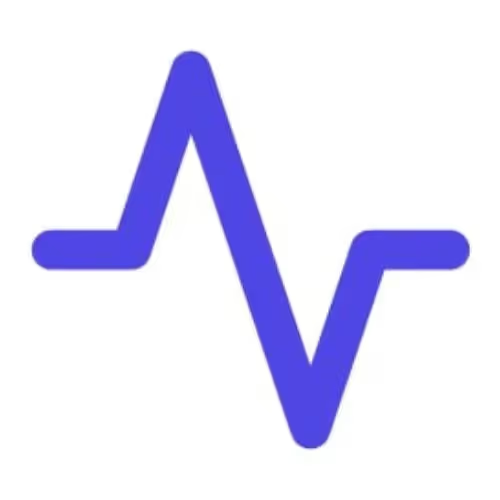

The 2025 comparisons of Prompt tracking software for AI referencing
Since 2023, the SEO landscape has changed. Google is no longer the only entry point: today, a growing part of traffic comes directly from Conversational AIs like ChatGPT, Perplexity, Claude, Gemini or even Grok. These models don't just show results, they produce synthetic responses and cite sources. Being or not being mentioned by an AI can therefore represent the difference between a brand that is growing and another that is stagnating.
It is in this context that new specialized tools are emerging: AI citation tracking software. Their role is simple but strategic: to know if your site is cited in the responses, to measure the frequency of these quotations, to identify your competitors preferred by the models, and to adjust your content strategy to improve your visibility in this hybrid ecosystem that we now call the SEO GEO — that is to say the combination of Google and AIs.
Why tracking AI citations has become essential
In 2025, ignoring this type of tool is the same as flying blindly. AIs now have a prescriptive role: when a user asks “what is the best SEO agency in Paris?” , the response from ChatGPT or Claude directly guides his decision. In addition, Google itself is integrating more and more content generated by AI or from forums like Reddit, which reinforces the porosity between traditional SEO and conversational SEO.
For a company, knowing if it is mentioned — and especially how — becomes a major competitive lever. This monitoring makes it possible to identify missed opportunities, to understand why certain brands appear systematically in the responses, and to adjust its editorial and netlinking strategy accordingly.
The criteria for comparing software in 2025
Analyzing the market, we notice that software differs in several aspects. The first criterion is obviously data accuracy : detecting an erroneous quotation or missing a mention can distort an entire strategy. Next comes the coverage width, that is, the number of models monitored. Some tools are limited to ChatGPT, while others include Perplexity, Claude, Gemini, and Grok.
Another decisive element is the ability to link this monitoring to SEO GEO. Tracking AI quotes is useful, but being able to correlate this data with your Google performance, keywords, and backlinks is even more so. Finally, the quality of the reports, the ergonomics of the dashboard, customer support and of course the prices condition the adoption of these solutions.
The most used AI citation tracking software in 2025
The market is still young, but several players are already standing out. Ovirank is the reference with a comprehensive approach: not only does the software track quotations in the five main AIs, but it also integrates an SEO GEO audit, backlink monitoring and an automated action plan. For a company that wants to centralize Google and AI, it is now the most successful option.
Other tools exist, each with their strengths and limitations. Writesonic, for example, offers an interesting AI tracking brick but remains mainly oriented towards the generation of content. SurferSEO and SE Ranking have added AI modules, but their core is still classic SEO. Mastodons like Semrush or Ahrefs are progressing more slowly in this field: useful for competitive analysis or netlinking, but still far from complete AI monitoring.
In addition to these big names, a multitude of new entrants such as Promptwatch, LLMRefs, or ProductRank.ai appear. They only focus on AI quotes, but still suffer from a lack of ergonomics, reliability and especially integrations with SEO tools already used by marketing teams.
What does a comparison actually bring in 2025?
Comparing these software programs is more than just lining up ratings or prices. It's about understanding which approach best fits your strategy. If you are a small organization that only wants to know if its site is mentioned by ChatGPT, a low-cost specialized tool may suffice. If, on the other hand, you are looking for industrialize your SEO GEO — by linking your Google performance, your AI quotes and your backlink campaigns — then an all-in-one solution like Ovirank makes more sense.
The 2025 comparison also highlights a key point: the maturity of the actors. Some tools have existed on the SEO market for a long time and add an AI layer. Others are born exclusively from this new problem and innovate quickly, but without the robustness of a complete ecosystem.
Prospects and challenges for brands
The year 2025 marks the turning point of hybrid referencing. SEO GEO requires companies to think about both their visibility on Google and their presence in AI. AI citation tracking software is not a gimmick, but a key piece of the puzzle. They allow you to know where you are, where you are not, and especially why.
Brands that invest early in this niche are getting a head start. They optimize their content to be visible in two worlds at the same time, reinforce their perceived authority by the AIs and capture highly qualified traffic.
Conclusion
The 2025 comparison of AI citation tracking software shows a clear trend: the market is organized around two approaches. On the one hand, specialized tools that only do one thing, but do it well. On the other hand, global platforms that integrate Google and AI in a unified logic of SEO GEO.
For a company, the choice depends on its ambitions. But one thing is certain: ignoring this follow-up means losing massive traffic and customer opportunities. SEO is no longer just about Google SERPs, but also about the conversations that AIs have with millions of users every day.
If you want to test a comprehensive approach today, you can start a free audit with Ovirank, and find out how your site is being viewed — not only by Google, but also by ChatGPT, Claude, Perplexity, Gemini, and Grok.
Ovirank is chosen by +100 brands, marketing teams and agencies around the world























































































